We all know that wasps and bees are essential for plants to be pollinated. Without pollination, there will be no seeds and, in some cases, no fruit, as in the case of cucumbers and tomatoes. But if you don’t want wasps and bees near your home, this article on what plants keep wasps and bees away will be very useful for you.
As I mentioned recently, wasps and bees are essential to all plants. However, if you have small children in your garden or someone is allergic to them, you should keep them away. Fortunately, some plants will keep wasps and bees away without the need to eliminate them.
In my vegetable garden, I do not plant these plants to keep wasps and bees away because I need them for pollination. However, near my home, I plant several of these plants to keep wasps and bees away and avoid stings, especially from wasps. Continue reading to learn what plants keep wasps and bees away.
Table of Contents
What Smell Do Wasps Hate the Most?

There are several smells that wasps and bees hate, for example, they do not like the smell of clove, geranium, and lemongrass essential oils. Mix a few drops of these oils with water and dish soap, then apply the mixture with a spray bottle where you don’t want wasps and bees. Also, these insects detest the smell of peppermint essential oil and dislike peppermint plants.
Another smell that wasps and bees hate is that of vinegar. Put some white vinegar in a container and place the container somewhere you don’t want wasps and bees. You can also mix water and vinegar in a spray bottle and spray it. This is another natural method.
The flowers of the cucumber plant attract bees and wasps, but cucumber slices keep them away. Bees and wasps do not like the bitterness of acidic cucumber peels.
Fortunately, some plants emanate scents that wasps and bees detest. Many of these plants are probably already present in your garden and just need to be placed correctly in the garden. Continue reading to discover the complete list of plants that keep wasps and bees away.
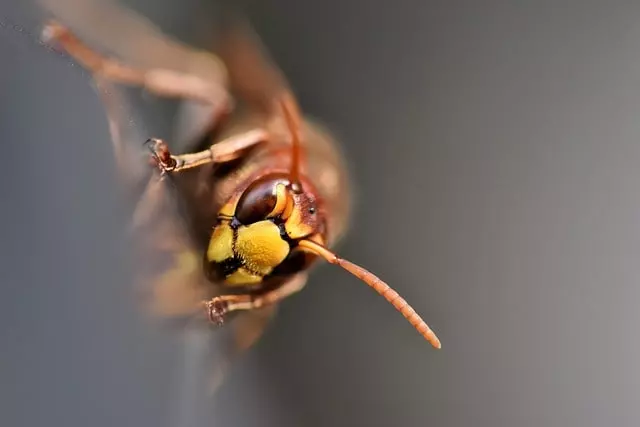
What Plants Keep Wasps, Bees, and Hornets Away

I have compiled a list to let you know what plants keep wasps and bees away. It is best to place these plants where you don’t want wasps, bees, and hornets. You can plant these plants in hanging pots near where you normally observe wasps and bees. Alternatively, you can also place potted plants around your home to just keep these insects away from your home.
Pennyroyal
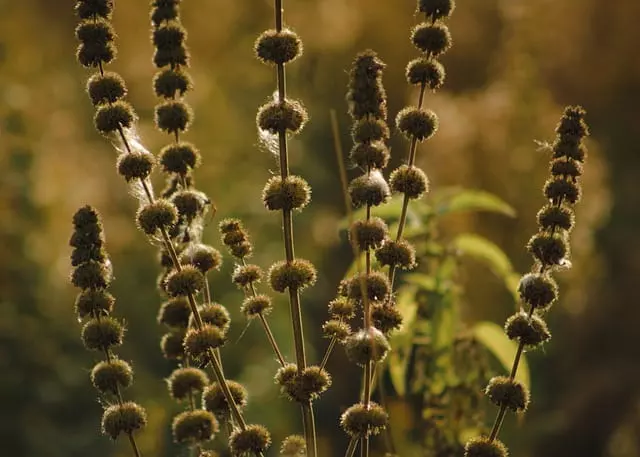
Pennyroyal (Mentha pulegium) is an aromatic plant that belongs to the mint family. It is small, grows to a height of about 16” (40 cm), and has oval, serrated, dark green leaves. This aromatic plant is ideal for keeping away wasps and bees. You can place pennyroyal in a hanging pot near a window.
Basil
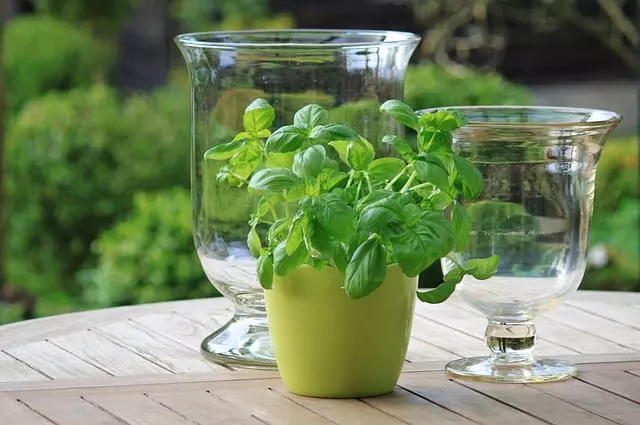
Basil (Ocimum basilicum) is an aromatic herbaceous plant commonly used in Mediterranean and Asian cuisine. It has dark green, oval-shaped leaves and produces small white or pink flowers in summer. With basil, you will keep wasps and bees away from your home, and you will be able to prepare tasty dishes. This aromatic plant needs 6 to 8 hours of sunlight to develop properly. Learn more about how to plant basil in a pot.
Geraniums
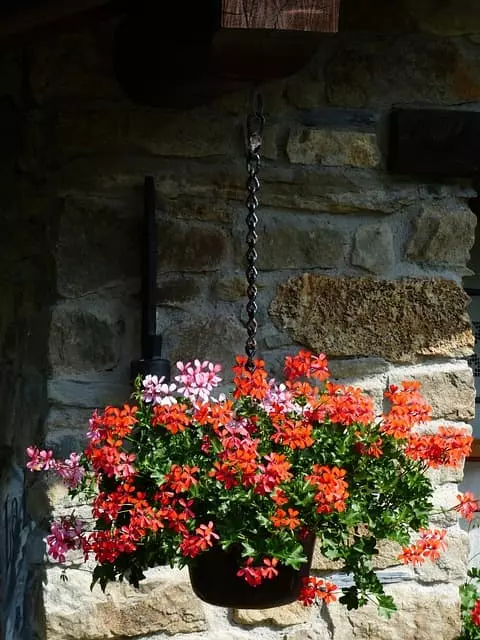
Red geraniums keep wasps and bees away. You are probably wondering why red geraniums? First, bees can’t see the color red, and second, they don’t like flowers with little pollen like geraniums. If you want to know more about what colors bees see, I recommend reading an article from the University of North Carolina. Geraniums also have a smell that is not to the liking of bees and wasps. Learn more about how to care for potted geraniums.
Eucalyptus
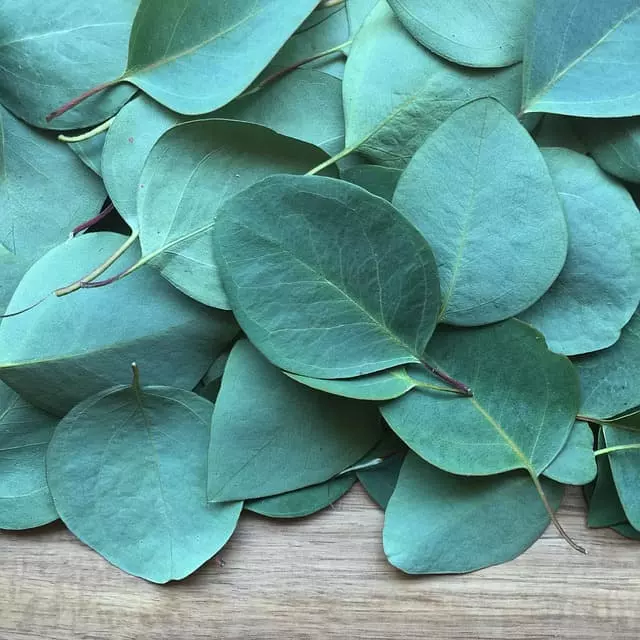
Eucalyptus is a tree native to Australia that has spread throughout the world due to its medicinal properties and its ability to adapt to different climates. This tree is drought tolerant and repels numerous insects, and it is effective not only against wasps and bees but also against other insects. Eucalyptus is hardy in USDA Zones 8-11. I recommend reading our article on how to care for eucalyptus.
Wormwood
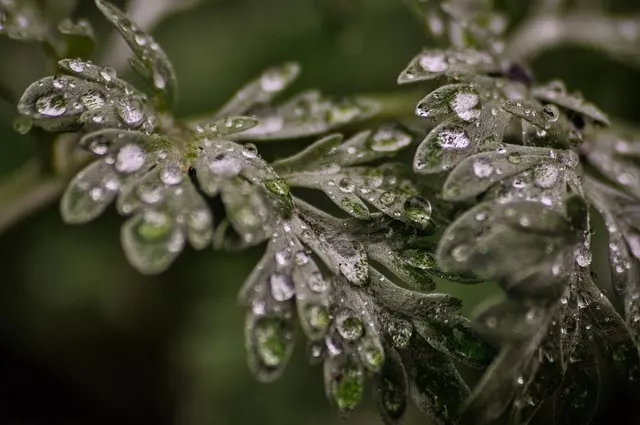
Wormwood is a herbaceous perennial plant characterized by its strong bitter taste and aroma that repels bees and wasps. I recommend planting wormwood in pots and not having it near other plants because it could also kill other plants. Place the wormwood in a place where it receives direct sunlight and with a well-drained substrate.
Mint
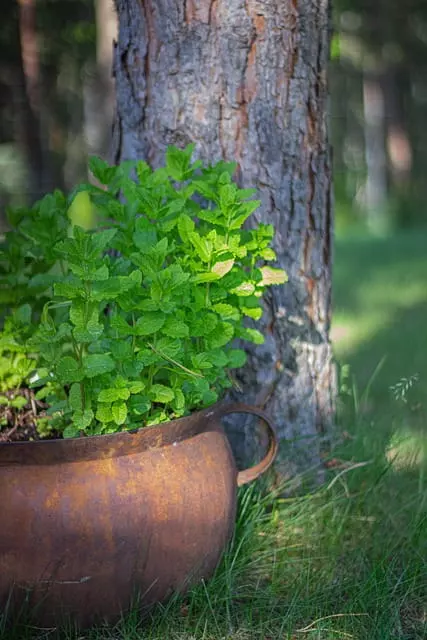
Mint (Mentha) is used to flavor sweet and savory dishes, as well as to prepare infusions and refreshing drinks. But mint is also excellent for keeping wasps and bees away from the home. Place mint in pots or hanging pots in a place in the home where you don’t want wasps and bees. If you plant mint in the garden, control its growth because it grows very fast.
Peppermint
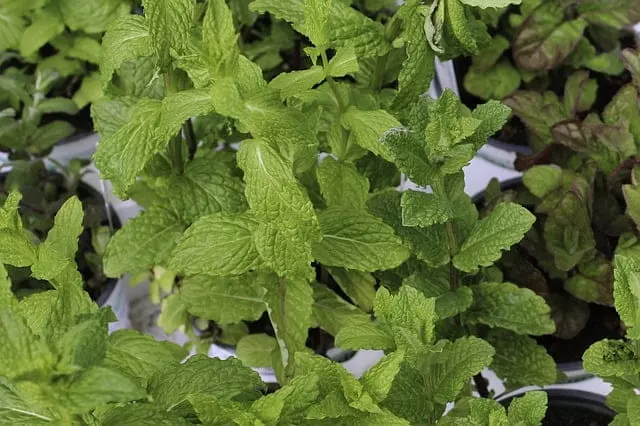
Peppermint (Mentha × piperita) is a variety of mint that is characterized by its fresh and spicy aroma, similar to mint. It is easy to grow in warm climates and adapts well to humid and sunny conditions. Having an aroma very similar to mint, peppermint is very good at keeping bees and wasps away.
Marigolds
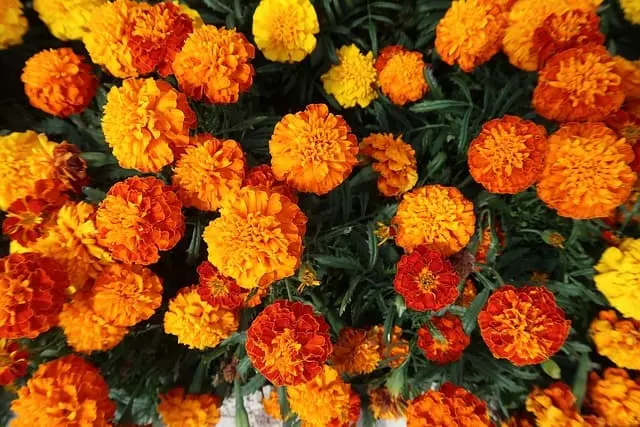
Marigold is an annual plant characterized by its vibrant orange or bright yellow flowers. Marigolds are effective in keeping wasps away, but not bees. Bees are attracted to marigolds. In addition, marigolds keep away various insects in the garden, so it is good to grow them next to vegetable plants. Marigold is hardy in USDA Zones 2-12. Learn more about how to grow marigolds.
Pitcher Plants
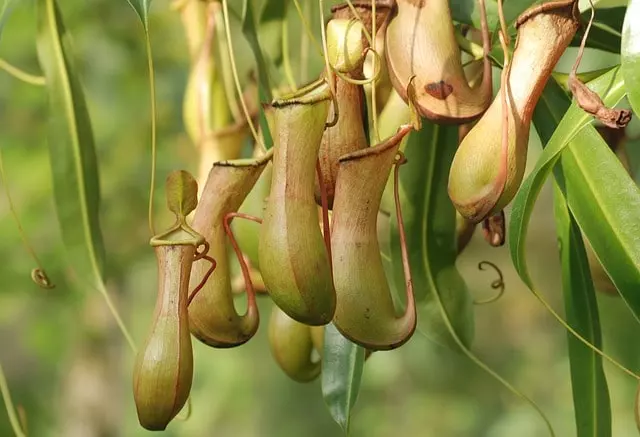
The pitcher plant is a carnivorous plant species found mainly in tropical and subtropical regions. These plants attract insects with nectar and color, and once they enter the pitcher, they are unable to leave due to the slippery structure of the inner walls. Pitcher plants should be watered with distilled water or rainwater. They are somewhat delicate but effective against insects in general. Take a look at these stunning Pitcher plants for your garden.
Thyme
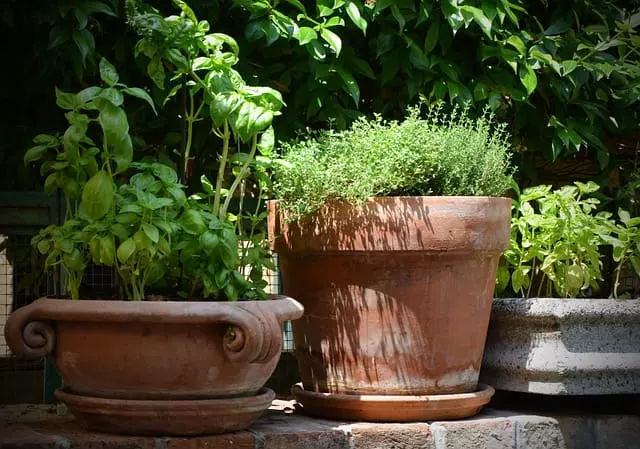
Thyme is an aromatic and medicinal plant native to the Mediterranean, characterized by its small and aromatic leaves. It produces small pink, purple, or white flowers in summer. The strong smell of thyme repels wasps and other insects. The best way to use thyme to keep bees and wasps away is to let some leaves dry and then spread them around the home. You can easily grow thyme from seed.
Lemongrass
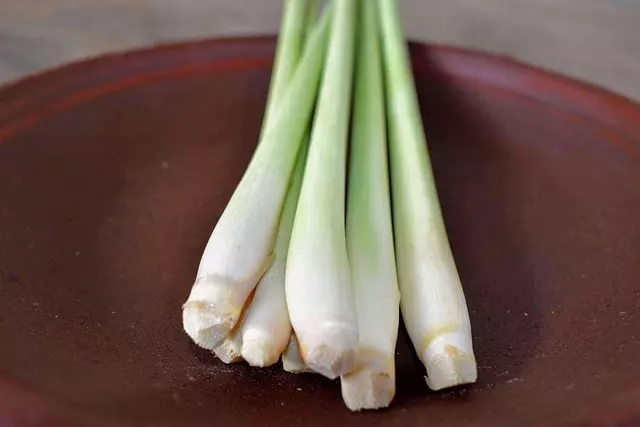
Lemongrass or citronella is famous for repelling mosquitoes, but it is also excellent for keeping away wasps and bees. Citronella can be grown in warm climates and is well adapted to humid and sunny conditions. Lemongrass is hardy in USDA Zones 9-10. There are different types of citronella that you can grow in your garden. Take a look at these stunning Citronella for your garden.
Garden Design to Keep Wasps, Bees, and Hornets Away with These Plants
Designing a garden layout with plants that may help deter wasps and bees involves strategic placement to maximize their effectiveness. Here’s a garden layout incorporating these plants:
Central Planting Bed:
- Surround the central area with marigolds. Marigolds not only repel some insects but also add vibrant color to your garden.
- Plant geraniums along the edges of the bed. Their strong scent might deter wasps and bees.
- Intersperse pennyroyal and wormwood throughout the bed. These plants have pungent scents that some insects dislike.
Herb Border:
- Create a border with basil, thyme, and lemongrass. These herbs are known for their aromatic properties that might help keep insects at bay.
- Include eucalyptus towards the back of the border. Its scent can deter some insects.
- Plant peppermint and mint in pots or containers along the border. These can be strategically placed near seating areas to discourage wasps and bees.
Corner Plantings:
- Place pitcher plants in a corner of the garden. While not a repellent plant, pitcher plants can attract and trap some insects, potentially reducing the overall insect population in your garden.
Pathway Planters:
- Line pathways with containers of mint and peppermint. These can serve as natural barriers along paths and entryways.
Focal Points:
- Use larger containers or raised beds to feature pennyroyal and wormwood as focal points. These plants can be placed strategically to discourage insects near gathering areas.
Open Spaces:
- Leave some open spaces in your garden for airflow and sunlight. This helps maintain a healthy garden ecosystem and reduces the likelihood of creating sheltered areas attractive to insects.
Remember to consider the specific growing conditions and space requirements of each plant when arranging your garden layout. Additionally, regularly maintain your garden by pruning, weeding, and watering as needed to keep it healthy and thriving.
Final Conclusions
If you found this article about what plants keep wasps and bees away, share it to help others who have problems with wasps and bees. Also, if you know of another plant that is not on the list, feel free to contact us, and we will gladly add it so that everyone can learn more about it.
Frequently Asked Questions About What Plants Keep Away Wasps and Bees
Several plants keep wasps and bees away. The most common garden plants to keep wasps away are:
Pennyroyal
Basil
Geraniums
Eucalyptus
Peppermint
Wormwood
Thyme
Mint
Marigolds
Pitcher Plants
Lemongrass or Citronella
Mint effectively repels wasps and bees. Place the mint plant near the places you want to keep them away.
Peppermint plants are effective in keeping wasps away. Their aroma is very similar to mint’s, and they are as effective as mint. A scientific study demonstrated that peppermint oil was effective against wasps.

